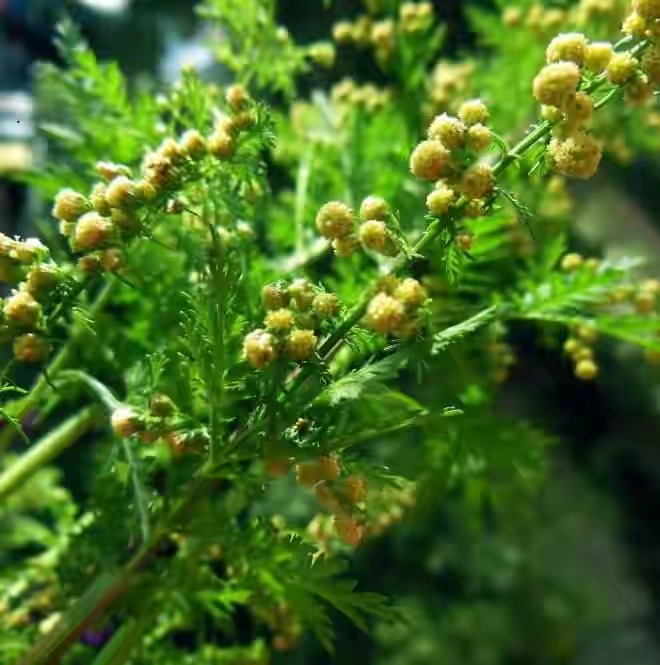Health Benefits and Side Effects of Cloves
SYZYGIUM AROMATICUM (SYNONYM: EUGENIA CARIOPHYLATA) OR CLOVES (ENGLISH) OR KANUNFARI (HAUSA): A SPICE WITH APPRECIABLE NUTRITIONAL AND HEALTH BENEFITS
DISCRIPTION
Clove is a median size tree (8-12 m) from the Mirtaceae family native from the Maluku islands in east Indonesia. For centuries the trade of clove and the search of this valuable spice stimulated the economic development of this Asiatic region. It has large leaves and crimson colored flowers grouped into terminal clusters. The flower buds initially green, turns to a bright red color when ready for harvest.
PRODUCERS
The larger producer countries of clove are Indonesia, India, Malaysia, Sri Lanka, Madagascar and Tanzania specially the Zanzibar Island.
CHEMICAL AND NUTRITIONAL CONTENT
Clove has a lot of phenolic compounds as flavonoids, hydroxibenzoic acids, hydroxicinamic acids and hydroxiphenyl propens. Eugenol is the main bioactive compound of clove, which is found in very high concentrations. 100 g of cloves contain: 274 calories, 13 g total fat, 6 g protein, 277 mg sodium 1020 mg potassium, and 66 g carbohydrate with 34 g dietary fiber. Kanunfari has been shown to improve digestion.

HOW MUCH CLOVES IS SAFE?
Clove essential oil is GRAS (generally recognized as safe) when consumed in concentrations lower than 1 500 mg/kg. However, the World Health Organization established that the daily quantity acceptable of clove per day is of 2.5 mg/kg of weight in humans.
The use clove oil in children has not yet been evaluated by the Food and Drug Administration (FDA), and as a matter of fact, the FDA currently does not strictly regulate herbs and supplements, such as clove oil.
HEALTH BENEFITS OF CLOVES
➡️ A popular home remedy to aid digestion is by taking a small amount of powdered clove along with honey. This combination is said to improve digestion by stimulating the production of digestive enzymes.
➡️Cloves are said to be good for flatulence, an age-long traditional medicine practice in the Western world.
➡️They are also good for dyspepsia, and gastric irritability.
➡️Clove has been actively involved in dental care in Ayurveda medicine as well as in the Western world. Clove oil is generally used in dentistry to treat pain from a dry socket, as well as used in a number of temporary restorative materials.
➡️Because the aroma of the oil is very strong, clove oil often leaves a lingering, aromatic presence in the dental clinics.
➡️Clove has been used to improve dental health and fight oral diseases.
➡️ It has also been applied as a painkiller for toothaches.
➡️Essential oil of the Kanunfari was found to be effective against many bacteria such as Steptococcus mutans (bacteria, which cause dental caries), Pnemococcus, and Staphylococcus.
➡️ The employment of clove as analgesic (painkiller) has been reported since the 13th century, for toothache, joint pain and antispasmodic, with eugenol being the main compound responsible for this activity.
➡️The mechanism evolved has been attributed to the activation of calcium and chloride channels in ganglionar cells.
➡️Scientific studies have shown that some extracts from clove exhibit inhibitory effect against some important oral pathogens, including those responsible for gingivitis.
➡️ In addition to the wide spectrum of activity of eugenol against bacteria, a study by Ali and his colleagues in 2005 showed that eugenol and cinnamaldehyde at 2 µg/mL inhibited the growth of 31 strains of Helicobacter pylori, after 9 h and 12 h of incubation, respectively, being more potent that amoxicillin and without developing resistance.
The activity and stability of those compounds was checked at low pH values since Helicobacter pylori resides in the stomach (This was published in the Annals of Clinical Microbiology and Antimicrobiology). It is worth mentioning that Helicobacter pylori is the main culprit behind stomach ulcer, which if left unchecked can lead to stomach cancer.
➡️The antiviral activity of eugenin, a compound isolated from Kanunfari and from Geum japonicum was tested against herpes virus strains and was found to effective at 5 µg/mL. It was deduced from this study that one of the major targets of eugenin is the viral DNA synthesis by the inhibition of the viral DNA polymerase.
➡️A study by Carrasco et al. in Brazil showed that clove oil can help in boosting immunity against diseases.
➡️Its essential oil was found to increase the total white blood cell count and enhanced the delayed-type hypersensitivity response in a laboratory animal.
➡️ Eugenol has been identified as a potential molecule that can interfere with several cell-signaling pathways to prevent cancer, specifically the nuclear factor kappa B (NF-KB).
This factor is activated by free radicals and results in the expression of genes that suppress apoptosis (programmed cell death, including cancer cells) and induce cellular transformation, proliferation, invasion, metastasis among others.
➡️Clove oil possesses the antioxidant property and so can effectively reduce the levels of the free radicals present in the oral cavity.
SIDE EFFECTS OF CLOVE
➡️People with bleeding disorders should not use clove oil, as it is known to cause increased bleeding.
➡️Also, oil of cloves is known to decrease blood glucose levels, so diabetics should exercise caution when considering the use of clove oil for dental pain.
➡️For some people clove oil may be allergic and can cause an anaphylactic reaction which includes itching, shortness of breath, and rashes.
➡️Clove oil is restricted to pregnant women and children below two years because even small quantities causes serious side effect like birth defects.
HOW TO USE CLOVE OIL FOR TOOTH PAIN:
1. Place two to three drops of the oil in a clean, small container. Add 1/4 to 1/2 teaspoon of olive oil. This mixture will prevent any soft tissue irritation that is common when using clove oil on its own.
2. Soak a small piece of cotton in the oil mixture until it is saturated. Blot the cotton on a piece of tissue to remove the excess oil before placing the cotton in your mouth.
3. Using a clean pair of tweezers, hold the cotton on the painful area for 10 seconds, making sure you do not swallow any of the oil.
4. Once complete, rinse your mouth with saline solution. This step may be repeated two to three times daily. CLOVE OIL SHOULD ONLY BE USED AS A TEMPORARY WAY TO RELIEVE PAIN FROM A TOOTHACHE. THE BEST PAIN REMEDY IS TO SEE THE DENTIST.
CLOVE OIL TO TREAT HALITOSIS (BAD BREATH):
Halitosis is widespread and is believed to affect one quarter of the population around the world and most people. Halitosis is mainly due to the pathogens present in the oral cavity; these pathogens will proteolyse (breakdown) the amino acid and release volatile sulphur.
Clove oil can be a short-term remedy for halitosis since it is anti-microbial, but cannot be used long-term because it lacks the probiotic activity. The Chinese have used cloves to get rid of bad breath for over 2000 years.
The end
These are the thoughts of:
Sa’eed Halilu Bawa
Senior Lecturer (Associate Professor) at University of the West Indies, St. Augustine Campus, Trinidad.
Studied Food and Nutrition Sciences, Dietetics at Kaduna Polytechnic, Nigeria; Warsaw University of Life Sciences, Poland.























